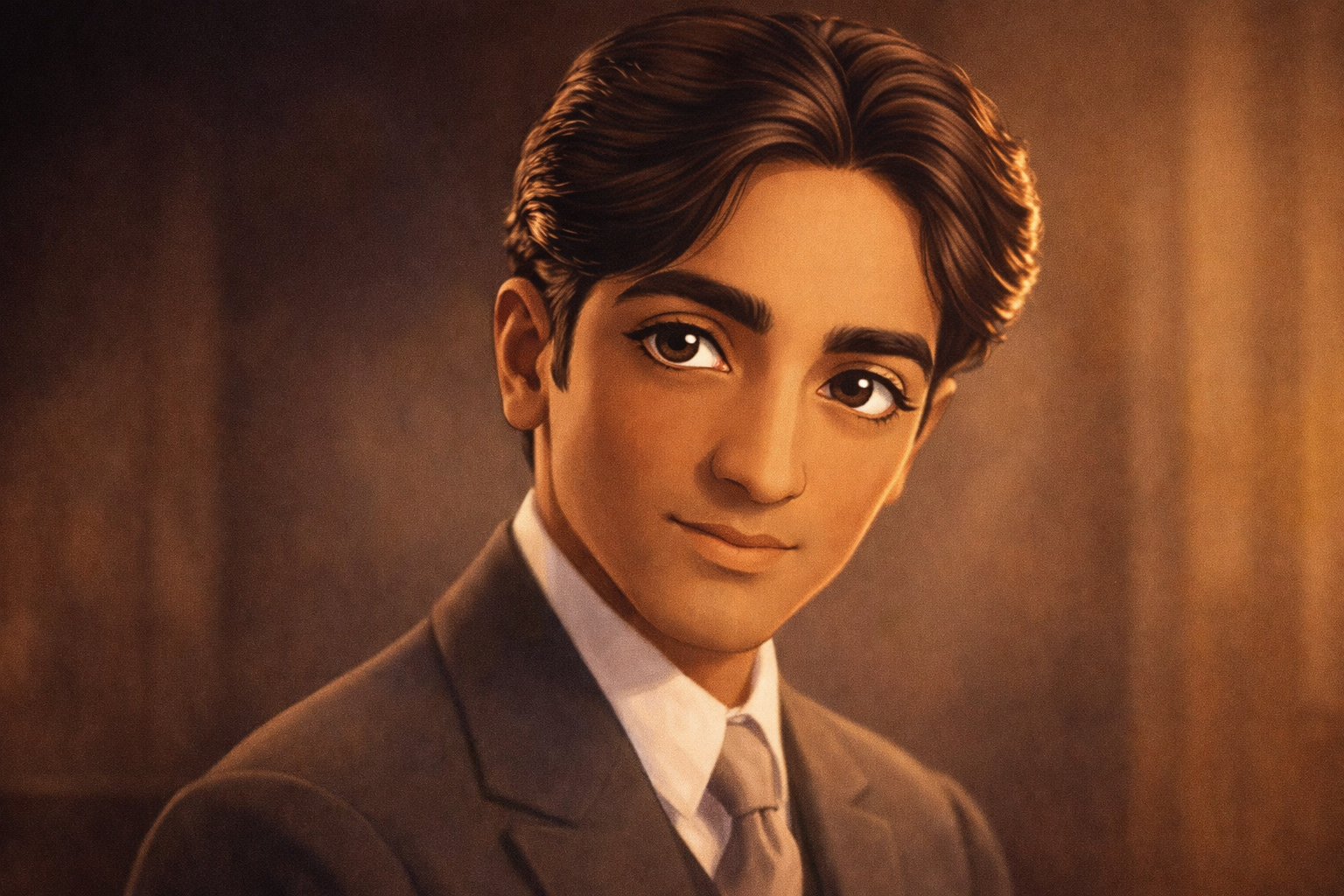On May 11, 1895, in the small town of Madanapalle in southern India, a frail boy was born into a Telugu-speaking family. His name was Jiddu Krishnamurti.
He was sickly, dreamy, often beaten at school for his absent mind. His father worked for the Theosophical Society, a spiritual movement that sought universal truths across religions. Fate would draw Krishnamurti into its fold.
The Chosen One
In 1909, at the Theosophical headquarters in Adyar, the society’s leader Charles Leadbeater noticed the boy wandering by the beach. He claimed Krishnamurti had the “most wonderful aura” he had ever seen. Annie Besant, the society’s president, soon adopted him.
They declared him the future World Teacher, a messianic figure destined to guide humanity. Krishnamurti, shy and malleable, accepted their guidance. He was educated, groomed, and taken to England, where he lived a life of study, refinement, and preparation.
“It is no measure of health to be well adjusted to a profoundly sick society.”
The Break with Destiny
In 1929, before thousands of followers gathered in the Netherlands, Krishnamurti stood to lead the Order of the Star, the organization built to proclaim him as the World Teacher. Instead, he dissolved it.
“Truth is a pathless land. You cannot approach it by any path whatsoever, by any religion, by any sect.”
It was a moment of rupture. He renounced the role imposed on him, rejected all titles, and walked away from the trappings of messianic leadership.
From then on, Krishnamurti belonged to no institution, no doctrine — only to freedom.
The Teacher Without a School
For the rest of his life, Krishnamurti traveled the world — India, Europe, America — speaking not as a guru but as a friend. He questioned authority, dogma, and tradition.
His talks were not sermons but dialogues. He spoke of fear, love, conditioning, and the need for radical self-understanding.
“You must understand the whole of life, not just one little part of it.
That is why you must read, that is why you must look at the skies, and that is why you must sing and dance, and write poems, and suffer, and understand, for all that is life.”
He urged people not to follow him but to look inward.
“The ability to observe without evaluating is the highest form of intelligence.”
Conversations with the Great Minds
Krishnamurti drew thinkers, scientists, and artists into dialogue. He spoke with physicist David Bohm about consciousness, with Aldous Huxley about human potential, with ordinary people who simply wanted to live more freely.
His presence was calm yet piercing — a mirror in which listeners confronted themselves.
The Final Silence
Krishnamurti continued speaking into his late eighties. In January 1986, in Ojai, California, he gave his final talk. On February 17, 1986, he passed away at the age of 90.
He left no successor, no organization to carry on his teachings. Only his books, recordings, and the living memory of his words remain.
“My only concern is to set men absolutely, unconditionally free.”
The Legacy of Krishnamurti
Krishnamurti’s life was a paradox: chosen as a messiah but rejecting messiahship, adored by followers yet insisting there should be none. His gift was not answers, but questions — questions that shook people awake.
“The ability to question is the beginning of wisdom.”
Even today, his words ripple across generations, reminding us that truth cannot be owned, packaged, or preached. It must be discovered freshly, in each mind, in each moment.
“It is only when the mind is free from the old that it meets everything anew, and in that there is joy.”
“When one loses deep intimate relationship with nature, then temples, mosques, and churches become important.”
“Happiness is strange; it comes when you are not seeking it. When you are not making an effort to be happy, then unexpectedly, mysteriously, happiness is there, born of purity, of a loveliness of being.”
“What you are, the world is. And without your transformation, there can be no transformation of the world.”
